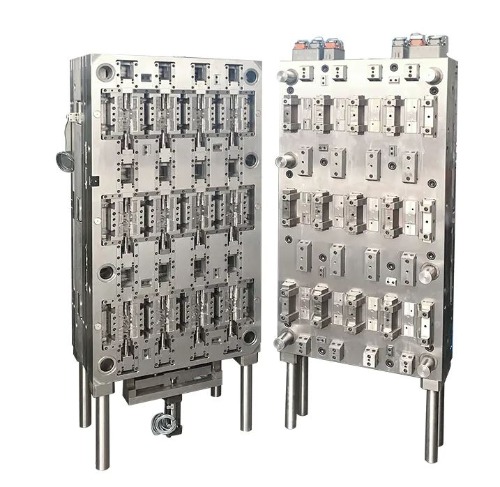When choosing a trigger pump mold, several factors should be considered to ensure optimal performance and quality. Here are some key factors to consider when selecting a trigger pump mold:
Mold Design: Look for a mold design that is suitable for the specific trigger pump design and functionality you require. Consider factors such as the number of cavities (single or multiple), gate design, cooling system, and ejection mechanism. The mold design should meet your production volume requirements and allow for efficient and consistent molding.
Mold Material: Select a high-quality mold material that offers good durability, heat resistance, and dimensional stability. Common mold materials for trigger pump molds include hardened steel, stainless steel, or aluminum alloys. The material should be able to withstand the molding process conditions and provide a long mold life.
Mold Precision and Accuracy: Precision and accuracy are crucial for producing trigger pumps that fit and function properly. Ensure that the mold is manufactured with high precision, tight tolerances, and proper surface finishes to achieve the desired dimensions and smooth operation of the trigger pump.
Mold Maintenance and Serviceability: Consider the ease of mold maintenance and repair. Look for a mold design that allows for easy access to mold components, such as cores, cavities, and ejector pins. This facilitates routine maintenance, cleaning, and replacement of worn parts, reducing downtime and ensuring consistent production.
Mold Manufacturer Reputation: Choose a reputable mold manufacturer with experience and expertise in producing trigger pump molds. Research the manufacturer's track record, customer reviews, and certifications to ensure they can deliver high-quality molds that meet your specifications.
Cost and Lead Time: Evaluate the cost-effectiveness of the mold, considering both the initial investment and the long-term production costs. Compare quotes from different mold manufacturers and consider the balance between cost and quality. Additionally, consider the lead time required for mold production, as shorter lead times can expedite your production timeline.
Support and Services: Assess the support and services provided by the mold manufacturer. This may include technical assistance, mold testing, troubleshooting, and after-sales support. A reliable manufacturer will offer comprehensive support to address any issues or concerns that may arise during mold production.
It is advisable to consult with mold manufacturers or industry experts to discuss your specific requirements and obtain their recommendations. Their expertise can help ensure that you choose the most suitable trigger pump mold for your production needs.Meanwhile,Trigger pump molds are widely used in the manufacturing of various products that require dispensing liquids or sprays. Some common applications of trigger pump molds include:
Personal Care Products: Trigger pump molds are frequently used in the production of personal care products such as shampoo, conditioner, body wash, lotion, hand sanitizer, and hair styling products. These molds enable the manufacturing of trigger pumps that dispense the desired amount of product with ease.
Cleaning and Household Products: Trigger pump molds find extensive use in the production of household cleaning products like liquid soaps, dishwashing detergents, surface cleaners, glass cleaners, and air fresheners. These molds allow for precise dispensing and controlled spraying of the cleaning solutions.
Automotive and Industrial Products: Trigger pump molds are utilized in the manufacturing of automotive and industrial products that require controlled dispensing or spraying. Examples include windshield washer fluids, lubricants, degreasers, and specialty chemicals used in automotive and industrial applications.
Gardening and Agricultural Products: Trigger pump molds are employed in the production of gardening and agricultural products such as plant fertilizers, insecticides, herbicides, and pesticides. These molds enable the production of trigger pumps that facilitate accurate and controlled application of these products.
Healthcare and Pharmaceutical Products: Trigger pump molds play a role in the production of healthcare and pharmaceutical products that require precise dispensing or spraying. This includes nasal sprays, oral sprays, throat sprays, wound cleaners, and topical solutions.
Food and Beverage Products: In the food and beverage industry, trigger pump molds are used for products like sauces, dressings, condiments, cooking oils, and flavored syrups. These molds enable the controlled dispensing of these products, allowing for portion control and ease of use.
It's important to note that the specific application of trigger pump molds can vary widely, and new applications may arise as product development and innovation continue. The versatility and functionality of trigger pump molds make them a valuable tool in industries that require precise dispensing or spraying of liquids or sprays.





 English
English Español
Español










